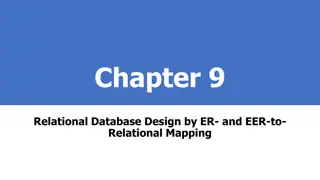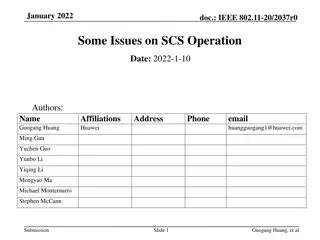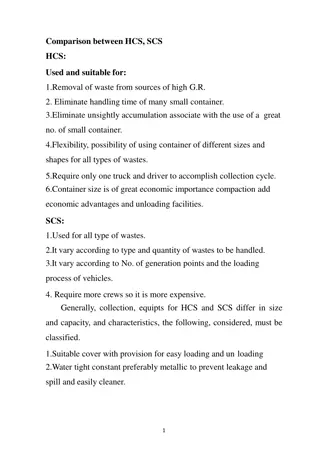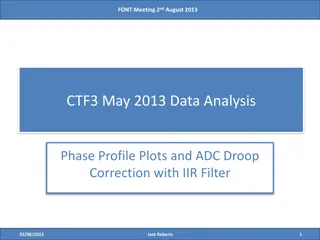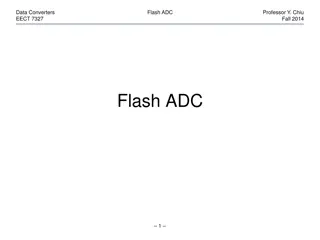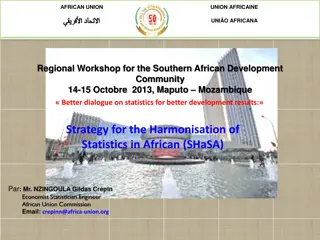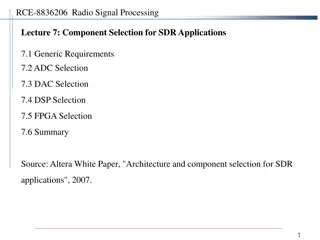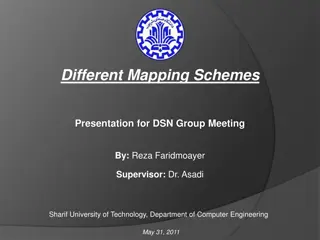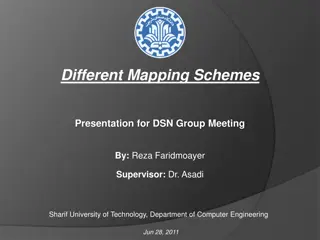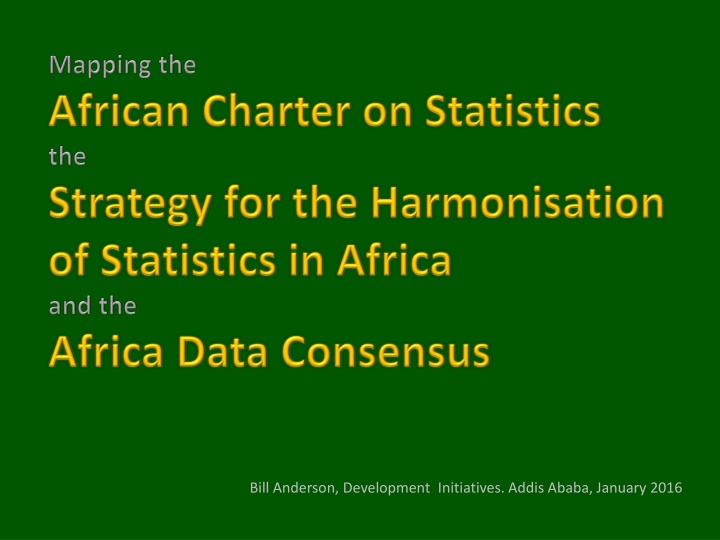
Embracing International Standards for African Statistics Harmonisation
Focusing on the importance of harmonizing African statistics through respecting international standards. The African data community aims to improve data validity, credibility, and availability by aligning with global norms. Challenges such as lack of accessible data, poor dissemination, and inadequate resources are recognized, emphasizing the need for coordination and capacity building.
Download Presentation

Please find below an Image/Link to download the presentation.
The content on the website is provided AS IS for your information and personal use only. It may not be sold, licensed, or shared on other websites without obtaining consent from the author. If you encounter any issues during the download, it is possible that the publisher has removed the file from their server.
You are allowed to download the files provided on this website for personal or commercial use, subject to the condition that they are used lawfully. All files are the property of their respective owners.
The content on the website is provided AS IS for your information and personal use only. It may not be sold, licensed, or shared on other websites without obtaining consent from the author.
E N D
Presentation Transcript
Bill Anderson, Development Initiatives. Addis Ababa, January 2016
Monitoring the SDGs requires the compilation of globally compatible datasets of national aggregates or estimates
Respecting International Standards African statisticians and all those operating in the field of statistics at the national, regional and continental levels shall respect the principles enshrined in the Resolution on the Fundamental Principles of Official Statistics. Adapting international standards and methods to African realities and aligning them will ensure the availability of harmonized statistical data... African Charter on Statistics Strategy for the Harmonisation of Statistics in Africa The data community should embrace the Fundamental Principles of Official Statistics as a starting point. All international norms and standards relating to official statistics should, where applicable, be extended to all data so as to improve their validity and credibility. Africa Data Consensus
Harmonising African Statistics ... coordination and dialogue amongst all Members of the African Statistical System are vital for harmonization, production and use of African statistics. The availability of harmonized quality African statistics, produced regularly and on time, will lead to the emergence of African reference statistics and herald the dawn of a distinct African statistical identity at the international level. African Charter on Statistics Strategy for the Harmonisation of Statistics in Africa The Pan Africanist Institutions (AfDB, AUC and ECA) should take the lead in the realisation of the Data Consensus Africa Data Consensus
Recognising National Challenges Strategy for the Harmonisation of Statistics in Africa Lack of accessible usable information that is open to all communities Poor information dissemination and access Inability to adequately assess and meet data user needs A mismatch between available data and actual problems Inadequate coordination, collaboration, networking and information sharing. Unsatisfactory data management. A lack of harmonisation of data collected by different sources in different formats Weak demand and capacity in the use of data at both national and local level Low appreciation of value and importance of statistics across society. Insufficient use of data for policy and decision-making. A lack of timely, accurate, comparable and relevant data. Data quality problems. Inadequate data analysis and reporting Weak data governance and accountability Low level of political support for statistics. Inadequate institutional capacity. Insufficient funding and dependence on external resources Low priority and inadequate funding for statistics. Inadequate resources (human and financial).
National Priorities the Basics Collection of Data Production of Statistics Use of Information
Expanding the statistical base Statistics authorities shall not embark upon statistical surveys except where pertinent information is unavailable from administrative records or the quality of such information is inadequate in relation to the quality requirements of statistical information. ... calls for the strengthening and leveraging of administrative and other sources of statistical information, and the development of a statistical base to ensure the availability of a broad range of statistics at low cost. African Charter on Statistics Strategy for the Harmonisation of Statistics in Africa Data must be disaggregated to the lowest levels of administration by gender, age, income, disability, and other categories. People must be counted to make them count. Civil registration should be accessible and provided at no cost. Africa Data Consensus
Turning data into usable information African statistics shall reflect current and topical events and trends. Statistics shall be presented in a clear and comprehensible form. To Promote a Culture of Quality Decision-making. African statistics shall meet the needs of users. To drive evidence-based decisions through the use of statistics. African Charter on Statistics Strategy for the Harmonisation of Statistics in Africa Data must be driven by needs rather than for its own sake. Data should be translated into information that is simple, understandable and relevant. Data communities should promote a demand-driven data user culture spanning the entire ecosystem. Africa Data Consensus
Open Data African statistics shall not be made inaccessible in any way whatsoever. This concomitant right of access for all users without restriction shall be guaranteed by domestic law. Good data should also be readily accessible to a broad range of public and private users, and have a breadth and depth of coverage to meet the needs of policy-makers in addition to informing the public African Charter on Statistics Strategy for the Harmonisation of Statistics in Africa Official data belong to the people and should be open to all. They should be open by default. Africa Data Consensus
The leadership role of NSOs At a national level, NSOs are the main players within NSSs and the ASS. They are the nodal government agencies entrusted with the development and management of official statistics. The building blocks for an African data revolution are already in place. National Statistical Offices have long been the backbone of data production and management, producing official statistics and supporting data activities to create accurate and timely data for decision- making. Strategy for the Harmonisation of Statistics in Africa Today s development challenges and prospects call for a broad data ecosystem that spans the entire value chain driven by national priorities and underpinned by the Fundamental Principles of Official Statistics. Africa Data Consensus
Government Academia Collection of Data Private Sector Civil Production of Statistics Society Use of Information Local Communities Development Partners
Communities Create an inclusive data ecosystem involving government, private sector, academia, civil society, local communities and development partners that tackles the informational aspects of development decision-making in a coordinated way. Governments must play a pro-active role in engaging this community and other stakeholders should prioritise partnership with government. Existing National Strategies for the Development of Statistics should be revised to become more inclusive of all data communities. African governments should acknowledge open data provided by credentialed data communities as acceptable sources of country statistical information. Africa Data Consensus
Vision To shed light on the path to an integrated, prosperous and peaceful Africa led by its citizens and that constitutes a dynamic force on the world stage by making comparable, reliable and updated statistical information available regularly and in a timely manner in support of policy and decision-making, covering political, economic, social and cultural aspects of development and integration. A partnership of all data communities that upholds the principles of official statistics as well as openness across the data value chain, which creates a vibrant data ecosystem providing timely, user-driven and disaggregated data for public good and inclusive development Africa Data Consensus Strategy for the Harmonisation of Statistics in Africa


